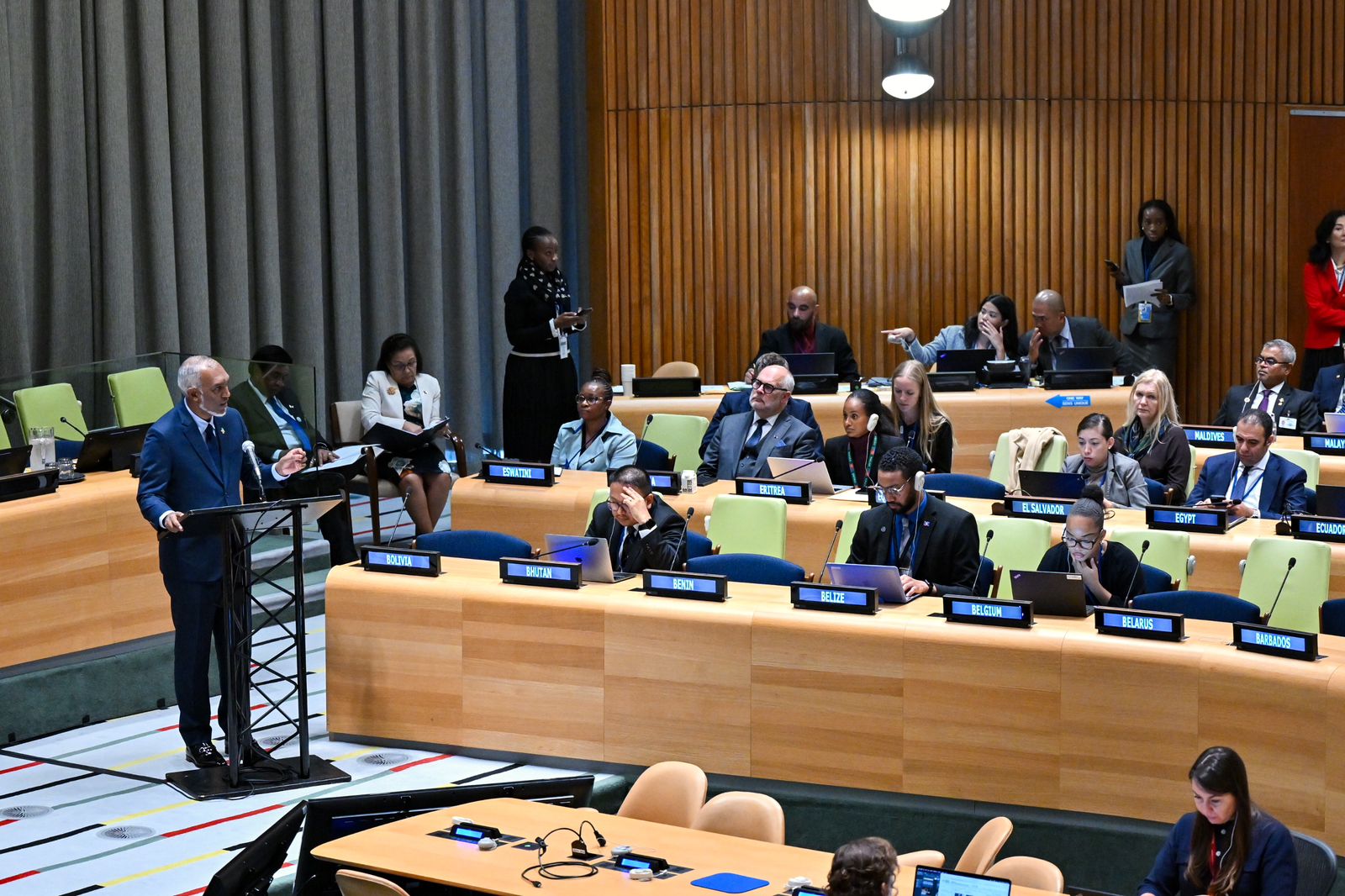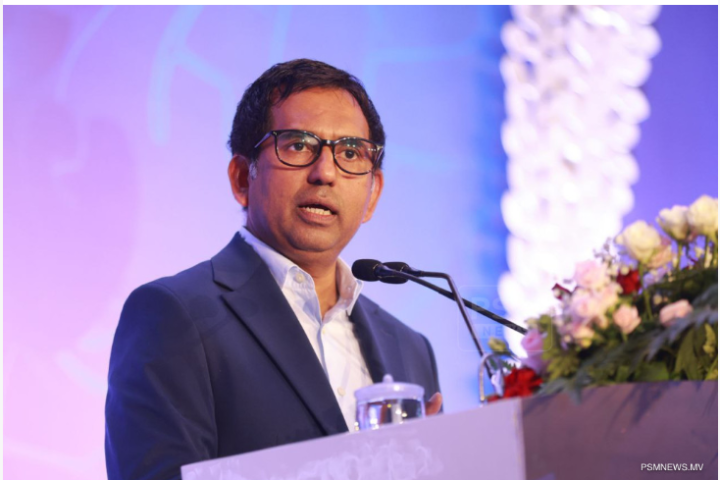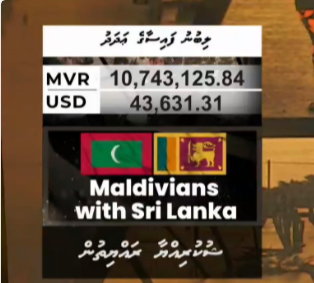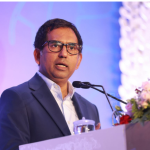NEW YORK —In an address at a United Nations General Assembly side event on renewable energy, President Mohamed Muizzu urged stronger international cooperation in combating climate change, while outlining the Maldives’ ambitious goals for renewable energy.
Reflecting on the 1989 Malé Declaration on Global Warming and Sea Level Rise, President Muizzu highlighted the country’s long history of climate advocacy. “For over three decades, the Maldives has continuously called for stronger action against climate change,” he said. “I was just a boy when the Declaration was adopted in the Maldives.” The remark underscored both the passage of time and the deep significance of climate action for the island nation, long vulnerable to the rising seas.
President Muizzu stressed that Small Island Developing States (SIDS), like the Maldives, cannot face the climate crisis alone. “A collective, collaborative effort by all nations, the private sector, and civil society is essential to effectively combat climate change,” he added.
He pointed to the Maldives’ progress in transitioning to renewable energy, noting that 33 percent of the country’s electricity demand is set to come from renewable sources by 2028. “When I made the announcement at COP28 last year, the installed renewable energy capacity in the Maldives was just 53 megawatts. Today, it has increased to 68 megawatts,” he said.
The President also detailed the government’s efforts to scale up investments in renewable energy, including solar photovoltaic systems on numerous islands and a waste-to-energy system in Addu City. He emphasized the economic benefits of reducing dependence on imported fossil fuels, which accounted for more than $65 million in spending during the first quarter of this year alone. “On average, we spend about 10 percent of our GDP on fuel every year,” he noted.
Looking to the future, President Muizzu highlighted plans to power 35 percent of the country’s fisheries sector with renewable sources within the next four years, reaffirming the Maldives’ position as a global leader in sustainable fishing practices. “Our mission is to advance even further, maintaining our leadership in sustainable, clean, and green fishing practices worldwide,” he said.
The President also underscored the business potential of the renewable energy sector in the Maldives. “I can assure interested partners that renewable energy in the Maldives is a profitable business opportunity,” he said. With 99 percent of the country’s territory consisting of ocean, Muizzu highlighted the untapped potential for ocean-based energy generation. “We want to explore how best the ocean can be used for energy generation,” he said, citing technologies such as ocean current energy, wave energy, and ocean thermal energy conversion.
Muizzu extended an invitation to international investors to participate in the Maldives’ renewable energy projects, noting the country’s unique position as an “incubator” for testing innovative systems. He also pointed to the Special Economic Zones (SEZ) Act, which encourages investment in renewable energy, with a minimum investment of $100 million. Earlier this year, the government issued its first permit under the SEZ Act for a project assessing the feasibility of a 150-megawatt floating solar farm to supply power to the Greater Malé region.
In closing, the President called for more accessible climate finance to support the Maldives’ transition to renewable energy. “We need the support of our friends and partners,” he stressed, urging the simplification of climate finance mechanisms in alignment with the global goal of limiting warming to 1.5 degrees Celsius.
He concluded his address with a message of hope and resilience. “The renewable energy transition is about building resilience to climate change. It’s about resilient economies, resilient societies. It is the story of our resilience.”










